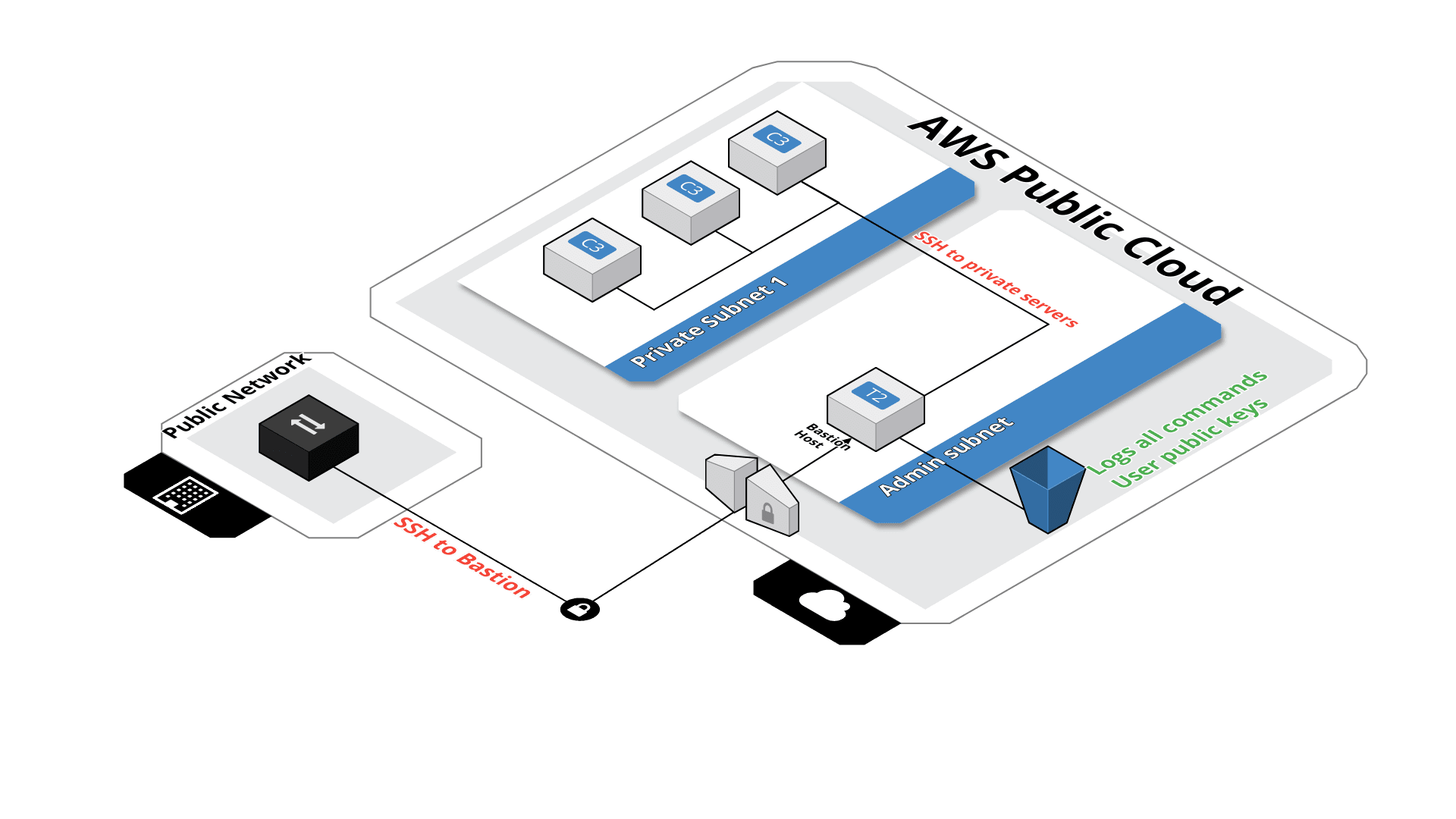
I’m not talking about over-engineered configurations). More secure than traditional setups with bastion hosts (of course, This will come handy in case of any audit 😏.įrom this perspective, AWS Systems Manager Session Manager is even "arn:aws:ssm:*:*:session/$-*"Īnd last but not least, you can review all the open session and you can even inspect the history. With IAM! User with the following policy attached can accessĪll three instances mentioned in the Resource property. You can even control access to the instances The obvious was already mentioned: no need to manage own EC2īut there’s more of it. Key advantages of Session Manager service

We can treat it as good old SSHįrom here. Prox圜ommand sh -c "aws ssm start-session -target %h -document-name AWS-StartSSHSession -parameters 'portNumber=%p'"įrom now it’s really straightforward.

#Aws bastion how to#
So shh command knows how to handle hosts starting with Now, we can just add following lines to ~/.ssh/config This plugin is available for all major platforms, just copy&pasteĪnd that’s pretty much it. Workstation by installing Session Manager plugin. We just need to quickly prepare our local It’s just ssh, right? So we’re almost ready, Let’s connect there directly from the workstation. However, it does not feel right for day-to-day operations 😂. When the instances are ready, we can view all the available sessionĪnd you can even start a new session from here. "ssm:GetDeployablePatchSnapshotForInstance", Managed role to the existing user-managed role. Pretty simple task, just attach AWS managed policyĪmazonSSMManagedInstanceCore to your instances and that’s it!Īlternatively, we can just copy&paste the content of this Instead, you can leverage fully managed Session Manager from theĪWS Systems Manager suite! Before you startįirst, you need to make sure that your systems have SSM Agent installed.īut if you are using official AMI, you can skip this since SSM AgentĪlso, your instances need proper IAM permissions. Such extra instances and take care of all the low-level configuration. That’s basically a different name for jump host you can use Right? How would you approach this? Usually, we use bastion hosts, ButĪt the same time you need to access your EC2 instances, There are customers where public internet access is no go.


 0 kommentar(er)
0 kommentar(er)
